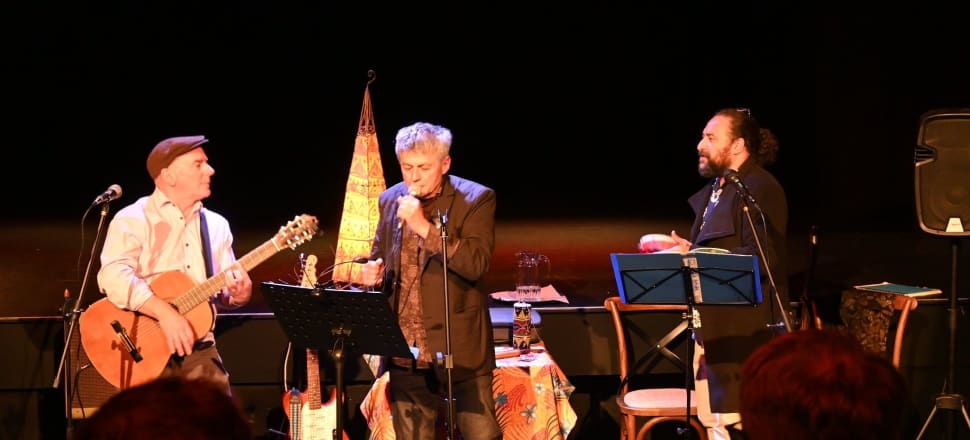
Creative NZ will be asked to reconsider its funding of Arts on Tour, which says it can’t keep taking shows to small centres on its present budget
A Christchurch trust that’s taken the performing arts to the regions for the past 40 years has given Creative New Zealand an ultimatum: fund us properly or we’re packing it in.
Arts on Tour this year lost its annual funding of about $230,000 that covered two staff salaries, two vans and 10 self-drive tours by the likes of the New Zealand String Quartet, Shakespeare exponent Michael Hurst, jazz diva Whirimako Black and an annual parade of emerging artists.
But Creative NZ this year dropped Arts on Tour from its Toi Uru Kahikatea investment scheme, gave it $88,000 and told it to apply for future support on an ad hoc basis.
Arts on Tour founder and artistic director Steve Thomas says the end is now in sight.
“Creative NZ doesn’t want Arts on Tour. It’s made it clear it’s not a priority for it and it’s just not sustainable on the allocation we’ve been given – $125,000 barely covers the salary bill.”
Creative New Zealand’s top brass will meet the Arts on Tour board in Christchurch next week, at the trust’s request, Thomas says.
“We’ve put an ultimatum to them: unless they can review their decision and put us back on the Kahikatea scheme we’re going to wind the thing up at the end of next year.”
The effective “cancelling” of the provinces is galling, Thomas says, given other Creative NZ spending decisions and corporate behaviour.
He cites the Cyclone Gabrielle Auckland Airport flooding debacle when Creative NZ senior managers took refuge in an airline lounge then grabbed the first taxis leaving staff to fend for themselves.
“They were travelling with 35 staff. They were rightly censured by their board for lack of manaakitanga,” Thomas says.
He’s also critical of the way the body staged a conference in New Plymouth last month.
“It has 84 staff and it hired an external organiser.
“There were tours of Parihaka and so on and they talked about why they need to give more support to Māori and Pasifika artists.
“It was interesting but how do you have 84 staff and still not be capable of organising your own event?”
Creative New Zealand did not respond directly to that question.
But chief executive Stephen Wainwright says Arts on Tour has been receiving funding since 1995 and Creative NZ has been its biggest public investor over the years.
That’s cold comfort for small arts councils around the rohe now faced with losing affordable access to the performing arts.
Too niche
On Rakiura-Stewart Island arts supporter Gwen Neave says the tours on offer for next year seem to reflect the meagre AoT budget, featuring little-known performers and fewer of them.
For the first time Toi Rakiura, the island’s arts trust, won’t be booking any of them because the more niche offerings are unlikely to pull an audience, she says.
“They’ve delivered great shows every year from the top of Northland to Stewart Island but we decided we wouldn’t pick up any of the acts this time because they wouldn’t have wide appeal.
“We have to be realistic about what people will turn out to see.”
Neave (Ngāti Kahungungu, Ngāti Rakaipaaka) is pleased Creative NZ is giving a greater share of its kitty to Māori and Pasifika arts, but she finds the decision to starve rural New Zealand audiences unfathomable.
“The funding is so blatantly metrocentric. I mean come on, if you want the arts to be strong across Aotearoa you have to ensure other communities apart from cities can enjoy them.”
She is disappointed Arts Minister Carmel Sepuloni has not put in a word for AoT.
“Her husband Daren Kamali was one of the poets who toured with AoT last year – they were great, the three ranters. I thought she might have seen the value in it.”
Thomas says the organisation has appealed to politicians of all stripes for support but the only one to respond has been National’s Simon O’Connor.
National has yet to release a policy on arts funding.
But the Tāmaki MP says National has consistently heard concerns from within the arts sector about Creative NZ’s decisions and transparency.
“A well loved arts programme servicing our rural community losing its funding is a major concern, especially when one considers the limited access to the arts in such communities.”
Wainwright confirms he will meet the Arts on Tour trustees in Christchurch on October 13.
But the chances of a funding review for the cash-strapped organisation sound less than promising.
“Arts on Tour knows our processes well and while it’s disappointed by the outcome of last year’s decisions we’re confident a company with its experience and networks will be able to adapt,” Wainwright says.
Made with the support of the Public Interest Journalism Fund








